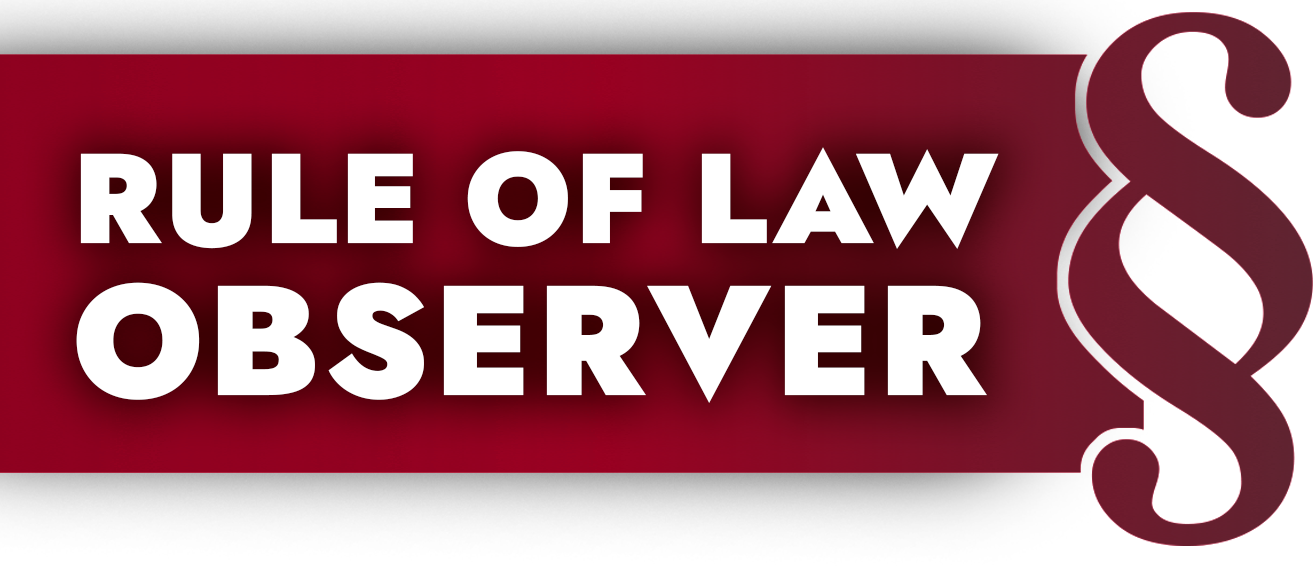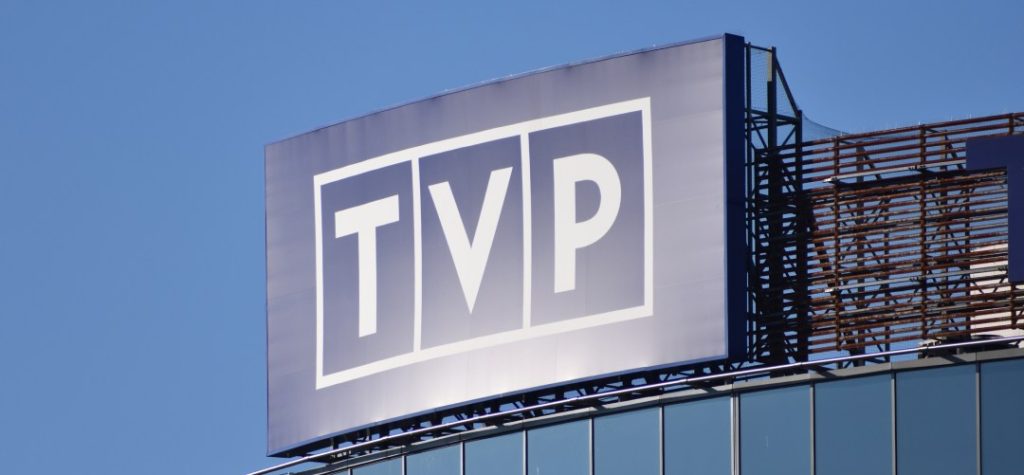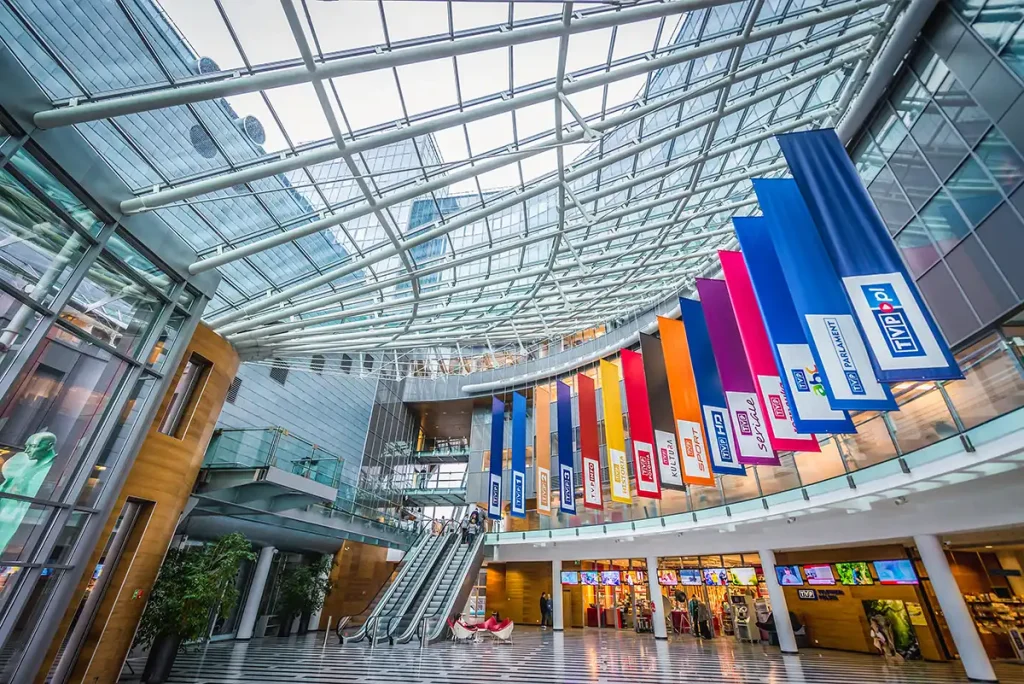- The event broadcast by TVP, described as a ‘Pre-election Debate’ in Końskie, took place in serious violation of the provisions of the Electoral Code.
- On the one hand, TVP, as the actual co-host of the debate, violated its obligation to ensure that all candidates had an equal opportunity to participate.
- On the other hand, the event can be considered election campaigning by TVP in favour of Rafał Trzaskowski.
- The violation of the statutory obligation of impartiality may result in penalties being imposed on the television station by the National Broadcasting Council, while Rafał Trzaskowski’s election committee may face a fine or even rejection of its financial report due to irregularities in the financing of the election campaign.
The echoes of the debate between the candidates for the President of the Republic of Poland, which took place on the evening of 11 April 2025 in Końskie, are still resounding. The organisation of this event has been controversial from the very beginning.
Originally, only two candidates who, according to polls, currently enjoy the highest support – Rafał Trzaskowski and Karol Nawrocki – were to take part. This format was proposed on Wednesday, 9 April, by one of the candidates, Rafał Trzaskowski. However, on the day the debate was to take place, less than two hours before its scheduled start, he proposed expanding the panel and invited all candidates to participate.
As a result, only eight of the thirteen registered candidates took part in the debate.
But what was this ‘debate’ in legal terms? Which entity organised it and was responsible for its conduct? What was the role of Telewizja Polska, which, as a public broadcaster, has special obligations when it comes to conducting election campaigns?
These doubts were best summarised by Maciej Świrski, Chairman of the National Broadcasting Council, in his letter of 14 April 2025 addressed to the Chairman of the State Electoral Commission.
He emphasised that the provisions of the Election Code provide for only two types of election campaigning in radio and television broadcasters’ programmes:
- holding a televised debate, or
- conducting election campaigning.
Meanwhile, the event that took place in Końskie combined the characteristics of both in a manner that was legally unacceptable, while also violating a number of requirements that should be met in each case.
TVP violated its obligations to conduct a debate.
Pursuant to Article 120 of the Electoral Code, TVP is required to hold debates with all candidates running for president. This obligation is specified in the Regulation of the National Broadcasting Council of 6 July 2011 on detailed rules and procedures for the conduct of debates by Telewizja Polska Spółka Akcyjna. Paragraph 4(1) of the Regulation provides for the obligation to hold at least one debate with the participation of all candidates, which shall be broadcast during the period specified in paragraph 3(3) of the Regulation, i.e. in the last two weeks preceding election day.
However, the Regulation (in §§ 5 and 6) also imposes a number of other obligations on Telewizja Polska, without referring in these provisions to § 3(3) of the Regulation. These obligations include, among others:
- enabling each candidate to participate in the same number of debates;
- informing candidates at least 48 hours before the broadcast of the debate about its date and topics;
- ensuring that the debates start at the same time, with a tolerance of ±15 minutes;
- agreeing on the selection of participants for each debate by the candidates themselves.
Reading the above provisions systematically and purposefully, they should be interpreted as follows: TVP is obliged to organise at least one debate for all candidates in the last two weeks before the election, and if it wishes to organise more debates, they must be on equal terms, including, above all, that each candidate must have the opportunity to participate in the same number of debates.
The above conditions were quite clearly violated. Even the campaign teams of those candidates who ultimately took part in the debate were not informed in good time of the time of its broadcast.
TVP is trying to defend itself against the accusation of violating the above provisions, pointing out in its official statements that it is not the ‘organiser’ of the debate, emphasising that: it is not the tenant of the sports hall in Końskie.
However, the provisions of the Electoral Code do not refer to ‘organising’ but to ‘conducting’ a debate. The above-mentioned statement said that TVP is ready to produce the signal for the ‘Pre-election Debate’ in Końskie with the participation of the candidates for the Office of President: Karol Nawrocki and Rafał Trzaskowski. It was also announced that: TVP SA, TVN 24 and Polsat News are ready to broadcast and make the television signal available free of charge to other interested media. One of the three people moderating the debate was journalist Joanna Dunikowska-Paź from TVP. As reported by Wirtualna Polska, TVP’s role did not end there: ‘We took care of the initial preparation of the hall so that the television stations could continue to build their studios there. The television stations are responsible for the cameras, sound system, cables and preparation of places for the candidates,’ said a member of Trzaskowski’s campaign team in an unofficial conversation with WP. Our interlocutors add that the rules of the debate were presented by representatives of the stations and only they had any influence on them.
In view of the above, what actually happened in Końskie can be considered a debate conducted by TVP – conducted with a serious violation of the obligations incumbent on the television station in this regard.
However, this is not the end of the doubts surrounding this whole affair.
Did TVP engage in election campaigning on behalf of the committee?
Can the broadcast of the debate be considered election campaigning, consisting, as defined in Article 116 of the Electoral Code, in the dissemination of an election broadcast of a specific committee?
Article 116a § 1 of the Code defines an election broadcast as a part of a radio or television programme, not originating from the broadcaster, constituting a separate whole in terms of content or form. In turn, § 3 of this provision defines the dissemination of election broadcasts as both the recording and broadcasting of speeches by representatives of election committees or candidates, and the recording and broadcasting of election broadcasts prepared by election committees.
At the very beginning of the debate, the TVP journalist co-hosting it described its status as follows: The debate is organised by the election campaign team of presidential candidate Rafał Trzaskowski, and Telewizja Polska, TVN24 and Polsat News have undertaken to conduct and produce this debate. The above words can be heard between 33:50 and 34:01 of the recording made available on Rafał Trzaskowski’s official channel.
Therefore, if TVP’s position is to be understood as meaning that the debate was not a programme originating from public television, it should indeed be classified as an election broadcast. What does this mean?
Firstly, according to Article 109 of the Electoral Code: Election materials should clearly indicate the election committee from which they originate. The debate broadcast by TVP was not marked in this way, unlike, for example, the film material inviting (at that time only Karol Nawrocki) to the debate, which was published on Wednesday, 9 April, on Rafał Trzaskowski’s profile on platform X.
(At the bottom of the recording, the inscription KW Candidate for President of the Republic of Poland Rafał Trzaskowski is visible)
Secondly, the question of who financed the production and broadcast of the debate must be answered. The rental of the hall, which TVP categorically denied, is only one of the costs associated with such an undertaking, and a rather minor one at that. As Przemysław Wipler pointed out on the X platform: The production of the signal and other expenses incurred by TVP in connection with yesterday’s debate cost over PLN 2 million! The signal alone cost up to PLN 2 million!
If these costs were incurred by TVP, then the election broadcasts were distributed free of charge, contrary to the provisions of Article 117 of the Electoral Code and the Regulation of the National Broadcasting Council on the time and framework for the distribution of free election broadcasts, the procedure for the distribution of time, the scope of recording and the manner of preparation and broadcasting of election broadcasts on public radio and television, which provides for the possibility of broadcasting such programmes only during the last two weeks of the campaign, at specific times within a time limit divided equally among all committees (amounting to approximately 45 minutes per committee), which has been significantly exceeded in this case.
If, however, these costs were incurred by the election committee, it should be noted that, pursuant to Article 119 of the Electoral Code, public broadcasters must broadcast election programmes for a fee on equal terms for all election committees – would TVP therefore also be prepared to broadcast debates organised by other candidates on the same terms?
However, such a broadcast would involve a breach of other provisions, which were also breached in Końskie. First of all, the broadcast by TVP of an election programme in the form of a debate constitutes a violation of Article 116a § 2 of the Electoral Code, according to which: election programmes of one electoral committee may not contain content constituting election campaigning for another electoral committee or its candidates.
It may also be added that the participation of editor Joanna Dunikowska-Paź in a debate organised by the campaign team of one of the candidates constituted a violation of the Principles of Journalistic Ethics at Telewizja Polska S.A, according to which: Journalists may not support parliamentary, presidential or local government election campaigns, participate in the work of election committees or participate in the production of their election broadcasts.
TVP thus found itself in a kind of catch-22 situation: on the one hand, it should offer the other committees the opportunity to purchase paid election broadcasts on the same terms as in Końskie, but on the other hand, it cannot do so because this would violate other provisions of the Electoral Code.
There seems to be no way out of this predicament – TVP may face proceedings before the National Broadcasting Council for the above violations. However, it is not the only entity facing legal consequences.
If TVP incurred any costs in connection with the production and broadcast of material prepared by the election committee, this would constitute financing of the election campaign in violation of Article 132 of the Electoral Code, which stipulates that election committees may not accept financial contributions or non-monetary benefits from legal persons, such as companies.
However, TVP is not the only entity suspected of providing such prohibited support. According to findings by journalists, the tenant of the hall where the debate took place (which TVP was so keen to distance itself from) is Dom Mediowy AM Studio, whose owner is described as a good friend of Prime Minister Donald Tusk.
Consequences
Regardless of whether the event that took place in Końskie will ultimately be considered a debate within the meaning of Article 120 of the Electoral Code, as election campaigning within the meaning of Article 116 et seq., or finally as a sui iuris entity combining the characteristics of both, Telewizja Polska undoubtedly violated the obligation of impartiality referred to in Article 21 of the Radio and Television Broadcasting Act. As indicated above, this may result in the imposition of penalties by the National Broadcasting Council, which in turn may lead to civil or even criminal liability of the members of the management board for damages caused to the company by unlawful actions.
In turn, the election committee must take into account the risk of receiving a fine under Article 496 of the Electoral Code (failure to clearly indicate the election committee from which the election materials originate) and Articles 506 (accepting financial benefits from a source other than a Polish citizen permanently residing in the territory of the Republic of Poland – i.e. from companies and other legal persons) and 507 (accepting non-monetary financial benefits other than those permitted by law). In the latter two cases, a fine may also be imposed on the person who granted the benefit in question.A violation of Article 132 of the Electoral Code may also result in the rejection of the committee’s financial report by the National Electoral Commission.
In view of the many unresolved doubts, including those concerning who actually financed the production and broadcast of the debate, it is necessary to establish the facts, especially with regard to the costs actually incurred, and then to draw appropriate conclusions regarding those responsible for the abuses that have occurred. It is to be hoped that the National Electoral Commission will respond to the call of the Chairman of the National Broadcasting Council and thoroughly investigate this situation.



